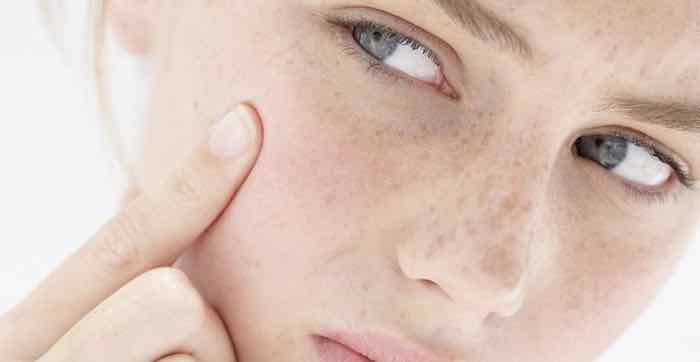It’s Time to Winterize Skin. It Doesn’t Tear Nylons!

My editor, namely my wife of 62 years, recently said to me, “I’m getting tired of reading about Alzheimer’s disease, cardiovascular problems, cancer and other dreadful ailments. Why don’t you, for one week, give us a break from depressing disease? I’m sure readers would like to learn how to protect skin during the coming winter season.”
One thing I’ve learned over the years is you never say no to an editor, particularly one who is your wife! So I interviewed experts about winterizing skin so it doesn’t look like dried prune. And are natural remedies available?
I. Stop Smoking
To show I’m not totally controlled by my editor, I’ll start with medical advice that’s good for all seasons. Stop smoking. Years ago I interviewed Richard Peto, professor of Epidemiology at Oxford University. His research shows that smoking decreases your time on this planet by 20 years. In addition, you won’t look very good as you enter the Pearly Gates. Years of smoking will have narrowed tiny arteries in the skin, robbing them of oxygen and nutrients such as vitamin C. Since this vitamin is necessary for the production of collagen, the glue that holds skin cells together, you will have more wrinkles with less C. Mayo clinic doctors raise another interesting point about smoking, that pursing the lips when inhaling, then squinting the eyes when exhaling to keep out the smoke, increases wrinkles. Moreover, heat and smoke from cigarettes damage skin over the years.
II.Short baths and showers in cold weather with warm, not hot water
Do I always practice what I preach? Yes, I try to follow a sound lifestyle, having reached my 94th year! But I do cheat on one rule. In winter, I love a long, hot, morning shower. Not a good idea. It causes dry, itchy, skin. So, take short baths and showers in cold weather with warm, not hot water.
III. Mild soaps with added oils and fats
Dermatologists advise against the use of strong soaps that strip oil from skin leaving it dry. They suggest mild soaps or detergent substitutes which contain added oils and fats. For instance, Dove, Purpose, Cliniderm and Cetaphil.
IV. Soap additives: Dyes and Perfumes
Several specialists I interviewed advised against soap additives, such as perfumes and dyes which can irritate skin and may cause allergic reaction. When wearing makeup, use a soft sponge or cotton balls to remove it. And for heavy waterproof makeup you need oil based products such as petrolatium jelly or Aquaphor. Finally, they say, be sure to pat skin dry with a soft towel. All this sounds very time-consuming to me. Possibly this is why more men end up with prune faces than women!
V. Moisture, moisture, moisture
Today, in large cities, the buzz word for prime real estate is location, location, location. The prime secret for healthy skin is moisture, moisture, moisture, to prevent winter itch and dry skin. Overheated homes, fireplaces, carpets and furniture all suck moisture out of the air. One study showed that the average home in winter is as dry as the Sahara Desert!
Dr. Suzanne Gagnon is a prominent Montreal dermatologist. Since I’m an advocate of natural remedies I asked her if she recommends a natural one to moisturize skin. She responded two, Reversa, a body lotion, and Reversa Skin Resurfacing face cream. They both contain glycolic acid, a natural derivative of sugar cane. The lotion not only moisturizes skin, but also improves the top layer, the stratum corneum, by locking in moisture to smooth and soften it. Glycolic acid also treats common little bumps on skin known as “chicken skin”. Dr. Gagnon reminds patients that all parts of the body need moisture, but for maximum effect, Reversa lotion should be applied to where the stratum corneum is especially thick, like elbows, knees and feet. After all, she points out, soft feet don’t tear nylons!
I hope deviation from human illness this week pleases my editor and readers. I have never been an advocate of radical skin treatment such as plastic surgery or Botox injections. Rather, I believe it makes more sense to treat skin with TLC (tender loving care) over a lifetime. This means moisture, moisture, moisture.
W. Gifford-Jones, MD and Diana Gifford-Jones -- Bio and
Archives |
Comments
W. Gifford-Jones, MD is the pen name of Dr. Ken Walker, graduate of Harvard Medical School. Diana Gifford-Jones is his daughter, a graduate of Harvard Kennedy School. Their latest book, “No Nonsense Health” is available at: Docgiff.com
Sign-up at DocGiff to receive our weekly e-newsletter. For comments, .(JavaScript must be enabled to view this email address). Follow our new Instagram accounts, @docgiff and @diana_gifford_jones
.

 My editor, namely my wife of 62 years, recently said to me, “I’m getting tired of reading about Alzheimer’s disease, cardiovascular problems, cancer and other dreadful ailments. Why don’t you, for one week, give us a break from depressing disease? I’m sure readers would like to learn how to protect skin during the coming winter season.”
One thing I’ve learned over the years is you never say no to an editor, particularly one who is your wife! So I interviewed experts about winterizing skin so it doesn’t look like dried prune. And are natural remedies available?
My editor, namely my wife of 62 years, recently said to me, “I’m getting tired of reading about Alzheimer’s disease, cardiovascular problems, cancer and other dreadful ailments. Why don’t you, for one week, give us a break from depressing disease? I’m sure readers would like to learn how to protect skin during the coming winter season.”
One thing I’ve learned over the years is you never say no to an editor, particularly one who is your wife! So I interviewed experts about winterizing skin so it doesn’t look like dried prune. And are natural remedies available?